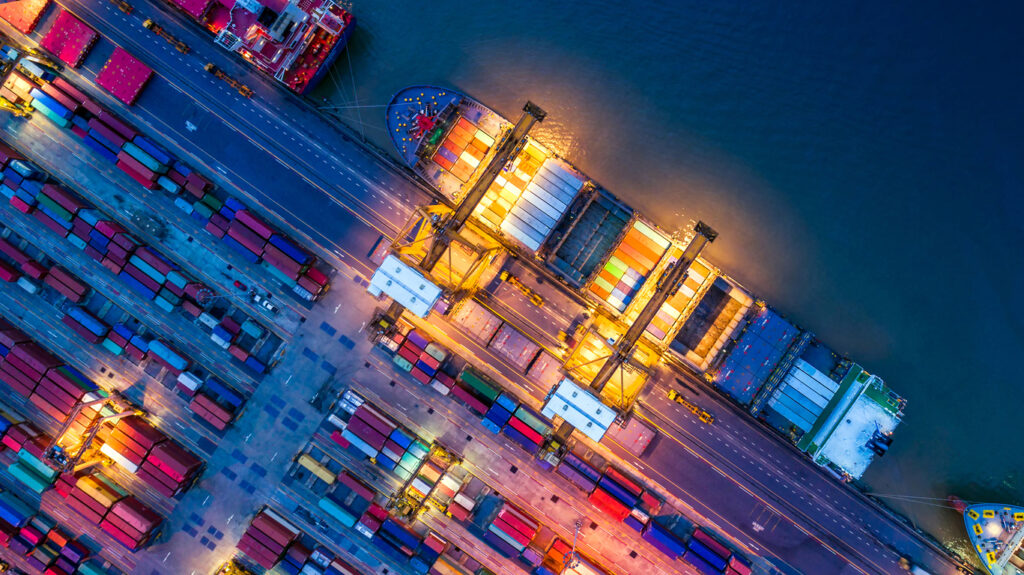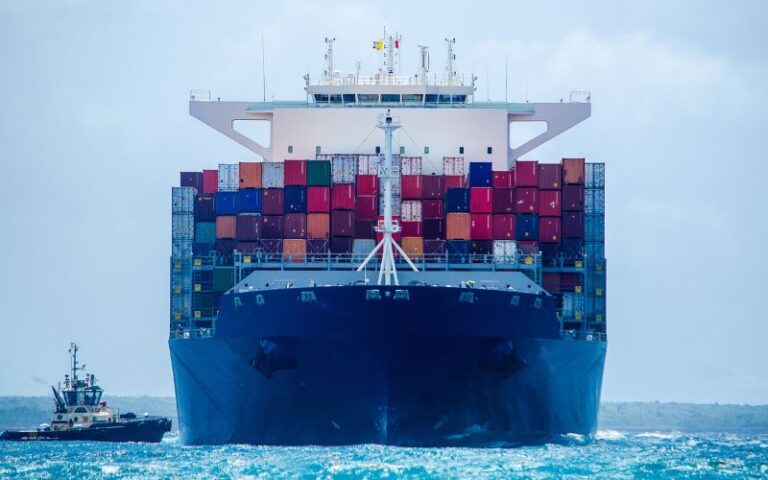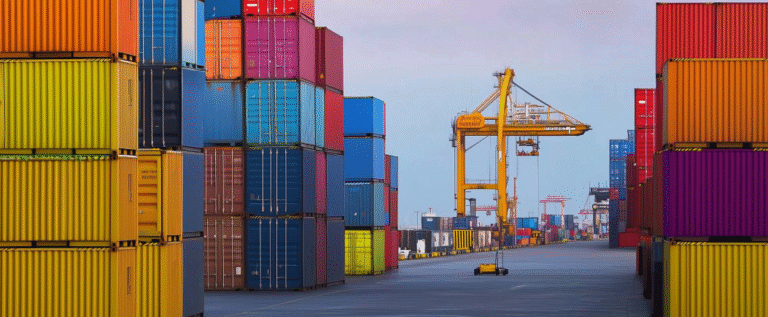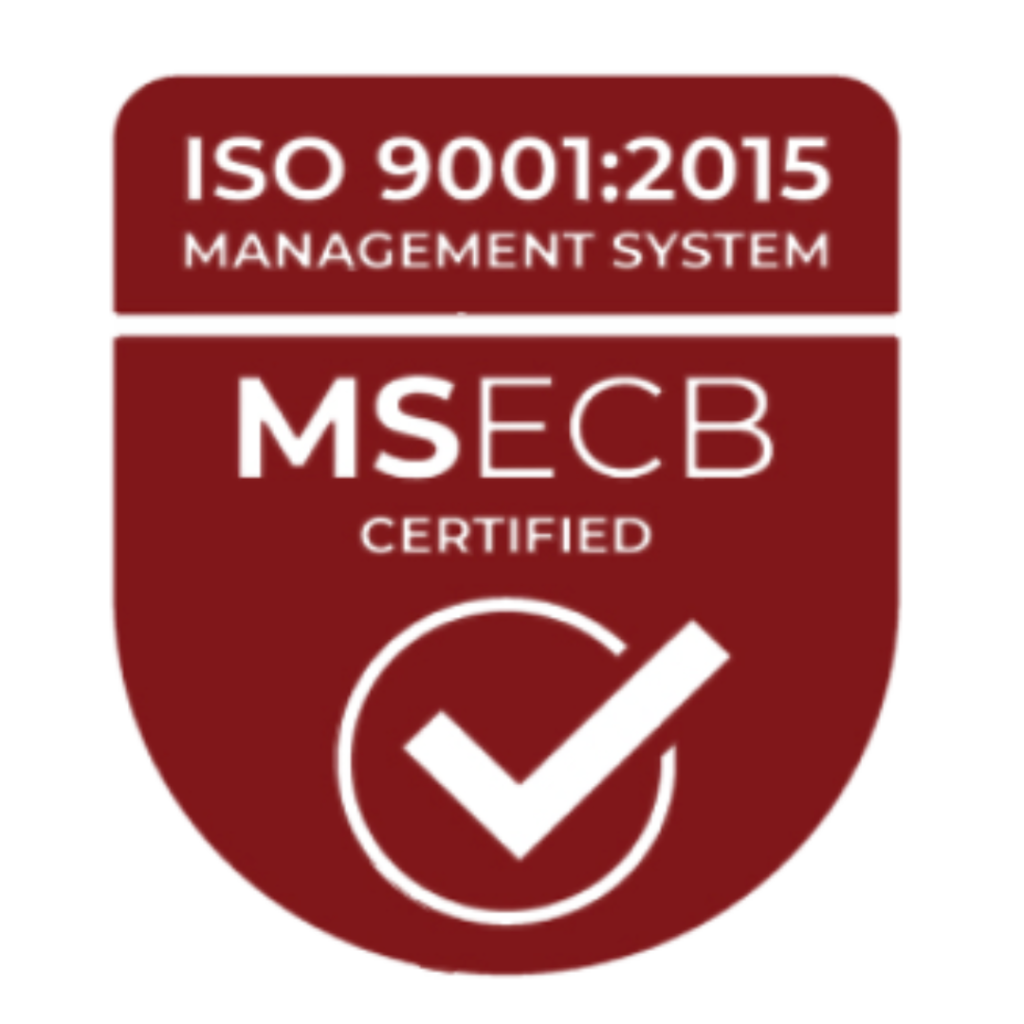In an interdependent world economy where international trade, as it exists today, handles more than 90% across the oceans, the efficiency of ports could make or retard economic growth. As West Africa’s largest economy and most populous nation, Nigeria’s ports, including Lagos (Apapa and Tin Can), Onne, Port Harcourt, and Warri, handle millions of tons of cargo annually. Behind these impressive numbers are the unsung heroes: Nigeria’s shipping lines, driving the country’s maritime success.
These coastal organizations form the foundation for effective vessel turnaround, enforcement of regulations, safety compliance, cargo operations, and coordination among several players. Step-by-step insight into how a Nigerian shipping firm with credibility assists in port functionality, ranging from ship berthing to final release of cargo.
1. Pre-Arrival Coordination & Documentation
Before any ship anchors off a Nigerian port, the shipping company starts working well in advance, before it appears above the horizon. The efforts made in advance of your arrival are:
- Pre-arrival notice (PANs) to such organizations as the Nigerian Ports Authority (NPA), Nigerian Maritime Administration and Safety Agency (NIMASA), and the Customs Service
- Winning berthing windows, particularly in major terminals such as Apapa and Onne
- Enablement of Electronic Cargo Tracking Note (ECTN)
- Presenting the crew list, manifest, marine declaration of health, and bunkers report of the vessel.
- Port readiness confirmation—Verifying pilot services, tug assistance, and stevedores are ready
Proper charting carries the ship permit into Nigerian waters without getting into undue distress with fines, etc.
2. Pilotage, Tug Escort, and Safe Mooring
Their Nigerian ports are potentially demanding when it comes to maneuvering ships due to narrow channels, tidal differences, as well as congestion. Sea companies are significant players in coordinating:
- Pilotage service, whereby professional port pilots board and pilot the vessel into the harbor safely
- Hire of tugboats, tailor-made according to ship size, along with manhandling needs
- Coordination of mooring staff such that lines are moored safely on arrival
These procedures are significant in tanker, container, and bulk carriers. There could be property damage, injuries, etc., if there is slight miscommunication. Maritime agents provide communication with the intention of ensuring smooth communication between the captains, the port control towers, and berthing teams.
3. Customs Clearance & Regulatory Liaison
While docking, the ship also has various clearances it has to make. A Nigerian shipping line intervenes to:
- Manage customs operations, such as import/export clearances and cargo inspections
- Cooperation with Immigration and Port Health in clearing the crew
- Ensure enforcement of NIMASA regulations and particularly with foreign-flagged vessels
- Monitor sanitation and quarantine inspections, with specific emphasis placed upon global health guidelines
Through having links with government agencies, these shipping companies hasten these clearing procedures, clearing off red tape among foreign shipping companies with minimal understanding of bureaucracy.
4. Cargo Operations & Terminal Liaison
Among the shipping firm’s major operations is communication with terminal handlers with the goal of successful cargo operations. These are:
- Scheduling loading/unloading with terminal operations coordination
- Tracking shore tank availability in liquid cargo or dry cargo container stack schedules
- Certification of sample cargoes gathered and sent for laboratory testing (particularly for petroleum products and agrico-products)
- Supervising tally clerks, crane handlers, and safety inspectors to discourage loss or theft.
- Bill of Lading, Certificate of Quantity (CoQ), and Certificate of Quality (CoQ) are issued correctly
Their communication reduces the latencies in cargo services and assists with compliance with Nigerian export-import procedures.
5. Crew Support Services
Crew welfare when calling ports has been less prioritized. Shipping line firms provide general support services such as:
- Shore pass and crew change facilitation
- Preparation for healthcare in case of sickness or injury
- Coordinating transport, accommodation, and visa renewals
- Supplying supplies, clean water, bunkers, or replacement parts
- Release of security briefing, particularly when mooring at risky ports like Bonny or Warri
A good shipping agency operates like an in-house logistics department for the crew, with vessel owners trusting in compliance and welfare.
6. Security Coordination and Risk Management
The Gulf of Guinea has also had its own set of prior safety issues, like piracy, smuggling, and cargo robberies. Nigerian shipping companies mitigate the risks with:
- Interactions with Nigerian Navy patrols and private maritime security companies
- Ship escort service administration while traveling through major sea lanes
- Employing armed security officers in offshore projects and high-risk sites
- Port security clearance maintenance, according to the requirements of the ISPS Code
Local response capacity, together with leadership, cannot be replaced, particularly when an emergency requires a rapid and coordinated response.
7. Emergency & Contingency Response
Operational crises such as unforeseen interruptions due to weather, terminal shutdown, and oil spillage are not new in Nigerian ports. Shipping lines anticipate and prepare to deal with:
- Cruise duration failures, offering parts resupply or towing capacity
- Oil spilling/leakage, response system activation with the National Oil Spill Detection and Response Agency (NOSDRA)
- Cases of fire when bunkering or loading, and connection to the port fire brigades
- Emergency health situations, e.g., COVID-19, where quarantine and testing assistance are required
- Documentation compliance, an expedient cure for non-compliance with regulations
Lacking a proper local counterpart, shipping lines risk their reputation, cargo loss, or safety.
8. Management of Disbursement Account (DA)
Ship calls in Nigeria always translate into staggering expenditures—berth rents, pilot hire, tugs, warehousing within ports, inspection fees, and agency commissions. Shipping companies make cost management straightforward by:
- Proforma Release of Disbursement Account (PDA) prior to shipment arrival
- Paying lower rates to local providers
- Monitoring actual expenditures during the port visit
- Issuance of Final Disbursement Account (FDA) with full receipts and explanations
- Providing currency conversion advice to foreign principals
Clear billing prevents shipping companies from paying outrageous or esoteric port fees—a common issue when shipping to unknown vendors directly.
9. Communication & Documentation Tools Digitally
New Nigerian shipping companies use the latest digital gateways in providing services to their customers globally. The gateways offer:
- Real-time ship position, anchorage, and milestones reports of cargo
- Bill sharing websites, manifest sharing websites, DG/CM compliance certificate sharing websites
- Integrated billing systems for monitoring costs online by shipowners
- Terminal activity dashboards, cargo tracks, and crew movement logs
These controllers minimize communication delay time and enable alien owners to drive easily, even thousands of miles.
10. Follow-Up and Reporting on Compliance Post-Departure
After the ship sets sail, the shipping company isn’t done yet. They:
- Submit all final reports to NIMASA, NPA, and terminal operators
- Prepare issue certificates required by insurers and charterers
- Help with follow-up audits, cargo claims, or settling disputes
- Make sure the crew exited the port area legally with an account
- Keep all records of compliance for future reference
It ensures legal follow-up operation aftercare and readies the vessel for a successful follow-up port call.
Choose Wolid International Ltd for Seamless Port Operations
Where efficiency, compliance, and reliability matter most, Wolid International Ltd. is your trusted Nigerian shipping partner. We provide comprehensive regulatory compliance with NPA, NIMASA, and NSC at affordable rates, backed by our ISO 9001:2015 certification, demonstrating our commitment to quality and operational excellence.
Our 24/7 services cover all major Nigerian ports, including Lagos, Onne, Warri, and Port Harcourt, encompassing advance document processing, berthing coordination, crew support, and cargo operations.
With transparent billing, expedited clearance, and dedicated hotline communication, we minimize downtime and unexpected costs. Whether you’re operating a cargo ship, tanker, or specialty vessel, Wolid ensures a smooth, secure, and cost-effective port experience.
Call us: +234 803 000 0000
Email: operations@wolidshipping.com
Visit: www.wolidshipping.com
Partner with Wolid—where expertise meets performance.
Conclusion: Why It Matters
For shipping lines and ship owners, having a competent Nigerian maritime company to deal with is not only convenient but also a necessity. Nigeria is transforming and developing its ports, but it is not without challenges: regimes of infrastructure lacunae and regulatory complexity, as well as security concerns.
A seasoned maritime company is your representative, your negotiator, your coordinator, and your problem solver in the business. Whether your enterprise covers general cargo, tankers, offshore supply, or LNG carriers, you can benefit from an experienced agency to avoid large costs, ensure higher safety, and abide by the law.
When choosing your agent, don’t seek out promises—seek out record, client referrals, local presence, and licensing. Because in Nigerian waters, who you’re represented by is everything.
